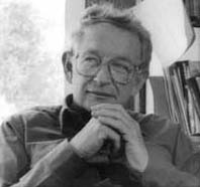非常抱歉,
你要访问的页面不存在,
非常抱歉,
你要访问的页面不存在,
非常抱歉,
你要访问的页面不存在,
验证码:

职称:Professor
所属学校:Princeton University
所属院系:Department of Physics
所属专业:Physics, General
联系方式:609-258-5850
I am a condensed matter theorist, a field in which I played the role of a major agenda-setter for 40 or so years (in fact I believe a colleague and I named the field in 1967 when we named our group in Cambridge--before that it was "solid state theory"). On occasional forays outside CMT I worked on pulsar glitches with David Pines and invented the "Higgs" boson in 1962. Since 1987 I have worked in that field almost exclusively on "High-Tc" superconductivity, a terribly complex and controversial field in which my contributions have at least the virtue of longevity. I became emeritus in 1997 at Princeton, where I have been since 1975; but my longest association was with Bell Labs 1949-84. I got into the Santa Fe Institute universe via the condensed matter phenomenon of the "spin glass', which I named in 1970 and produced the first theory with Sir Sam Edwards in 1975. Via work with Kirkpatrick and palmer, and later Stein, we came to realise that this was an important link between statistical physics and complex optimisation, and in the latter guise it spawned algorithms(simulated annealing), work on computational complexity, on neural nets (the Hopfield model etc), and on evolution on rugged landscapes. This was part of the Santa Fe Institute "toolkit" in the early days which for instance we showed off to John Reed of Citicorp in 1986. I also had developed an interest in economics via dilletantish studies in Cambridge, and was glad to help organise the global economy workshop in 1987, choosing a group of hard scientists to try to mesh with Arrow's ten economists, apparently with some success. I retain a watching interest in econ especially in pareto distributions on which I have one article and lots of acknowledgements. An older theme arose from my 1971 article "More is Different", which I follow up by writing on topics in epistemology of science. My earlier interests included Spectral Line Broadening, Magnetism, Broken Symmetry, Superfluidity in 3He, Transport Theory and Localization, Random Statistical Systems, and Prebiotic Evolution. In 2009, I received an honorary degree from Tsinghua University in Beijing, China. Also in 2009, I received the Prange Award from the University of Maryland.
I am a condensed matter theorist, a field in which I played the role of a major agenda-setter for 40 or so years (in fact I believe a colleague and I named the field in 1967 when we named our group in Cambridge--before that it was "solid state theory"). On occasional forays outside CMT I worked on pulsar glitches with David Pines and invented the "Higgs" boson in 1962. Since 1987 I have worked in that field almost exclusively on "High-Tc" superconductivity, a terribly complex and controversial field in which my contributions have at least the virtue of longevity. I became emeritus in 1997 at Princeton, where I have been since 1975; but my longest association was with Bell Labs 1949-84. I got into the Santa Fe Institute universe via the condensed matter phenomenon of the "spin glass', which I named in 1970 and produced the first theory with Sir Sam Edwards in 1975. Via work with Kirkpatrick and palmer, and later Stein, we came to realise that this was an important link between statistical physics and complex optimisation, and in the latter guise it spawned algorithms(simulated annealing), work on computational complexity, on neural nets (the Hopfield model etc), and on evolution on rugged landscapes. This was part of the Santa Fe Institute "toolkit" in the early days which for instance we showed off to John Reed of Citicorp in 1986. I also had developed an interest in economics via dilletantish studies in Cambridge, and was glad to help organise the global economy workshop in 1987, choosing a group of hard scientists to try to mesh with Arrow's ten economists, apparently with some success. I retain a watching interest in econ especially in pareto distributions on which I have one article and lots of acknowledgements. An older theme arose from my 1971 article "More is Different", which I follow up by writing on topics in epistemology of science. My earlier interests included Spectral Line Broadening, Magnetism, Broken Symmetry, Superfluidity in 3He, Transport Theory and Localization, Random Statistical Systems, and Prebiotic Evolution. In 2009, I received an honorary degree from Tsinghua University in Beijing, China. Also in 2009, I received the Prange Award from the University of Maryland.